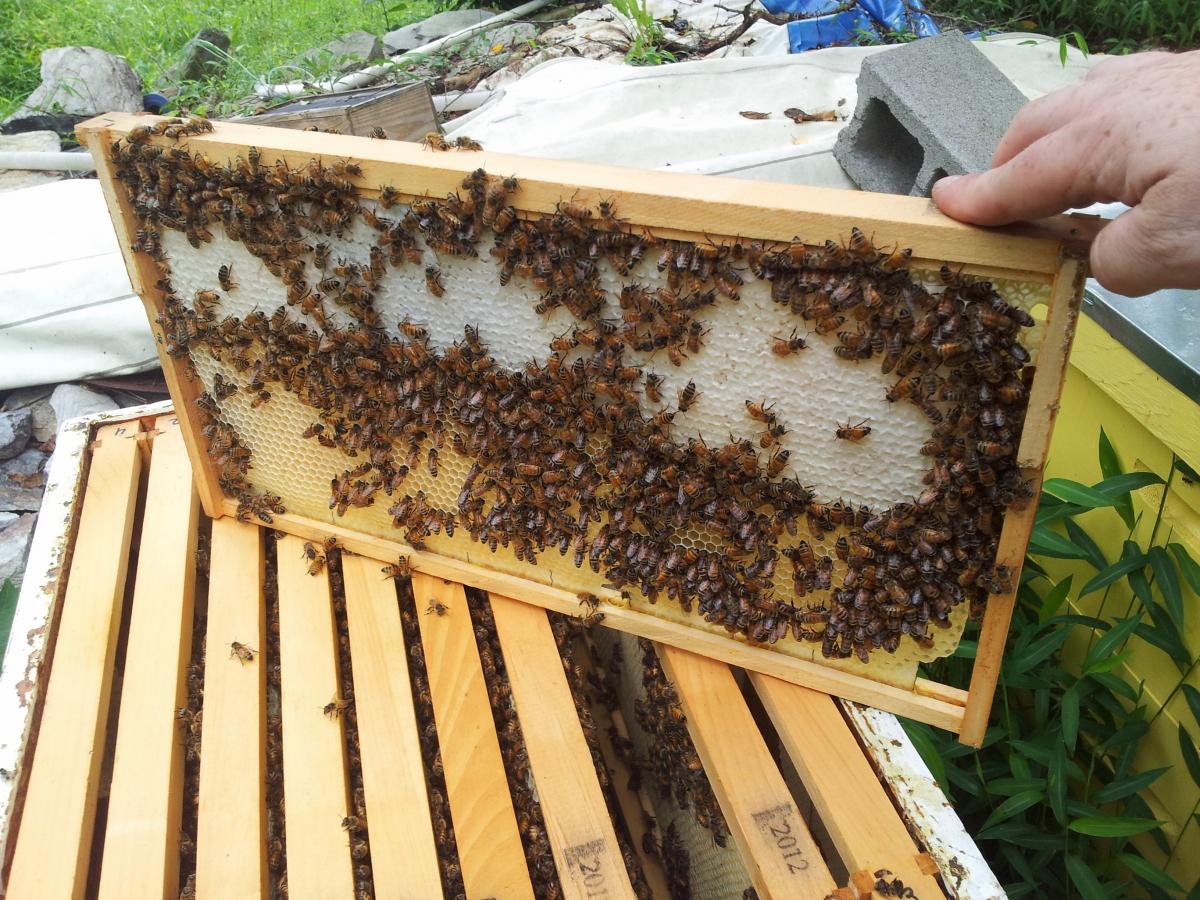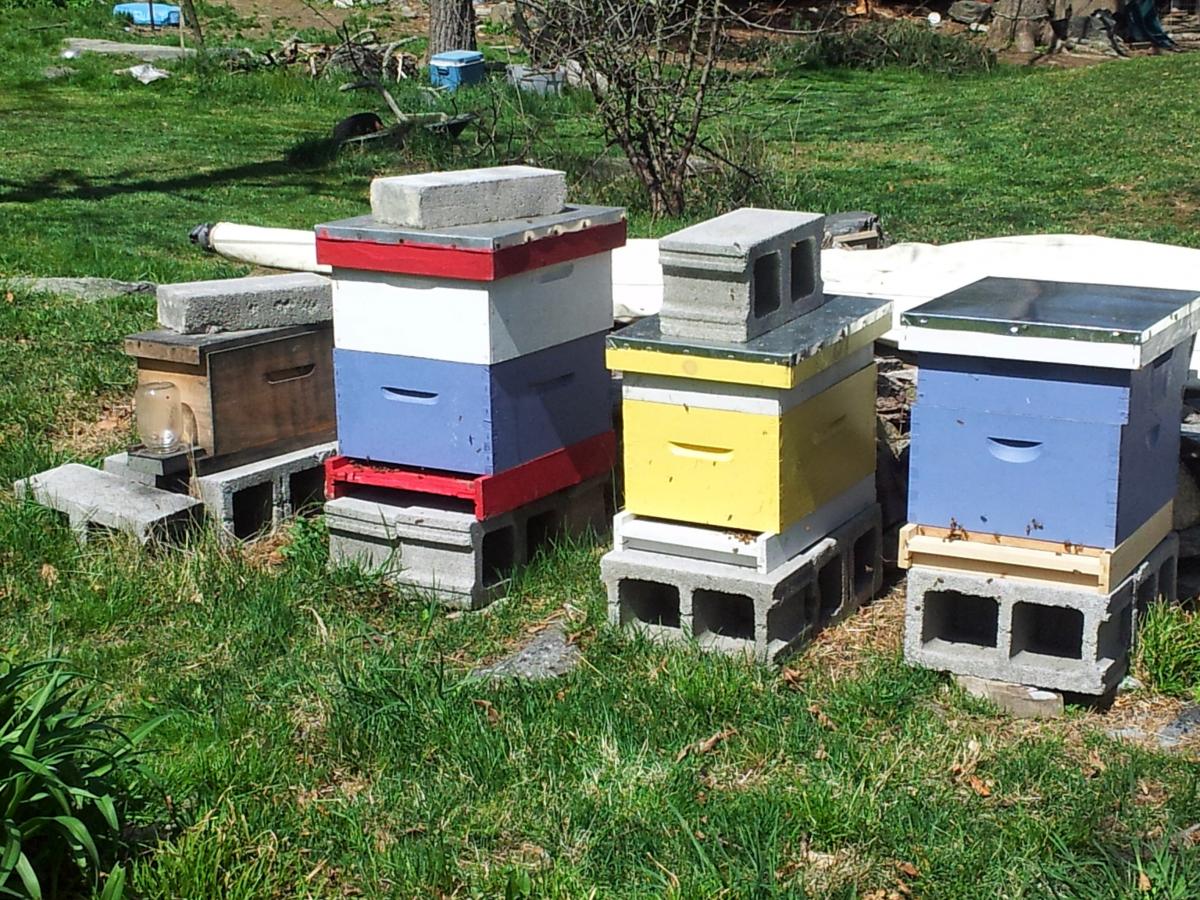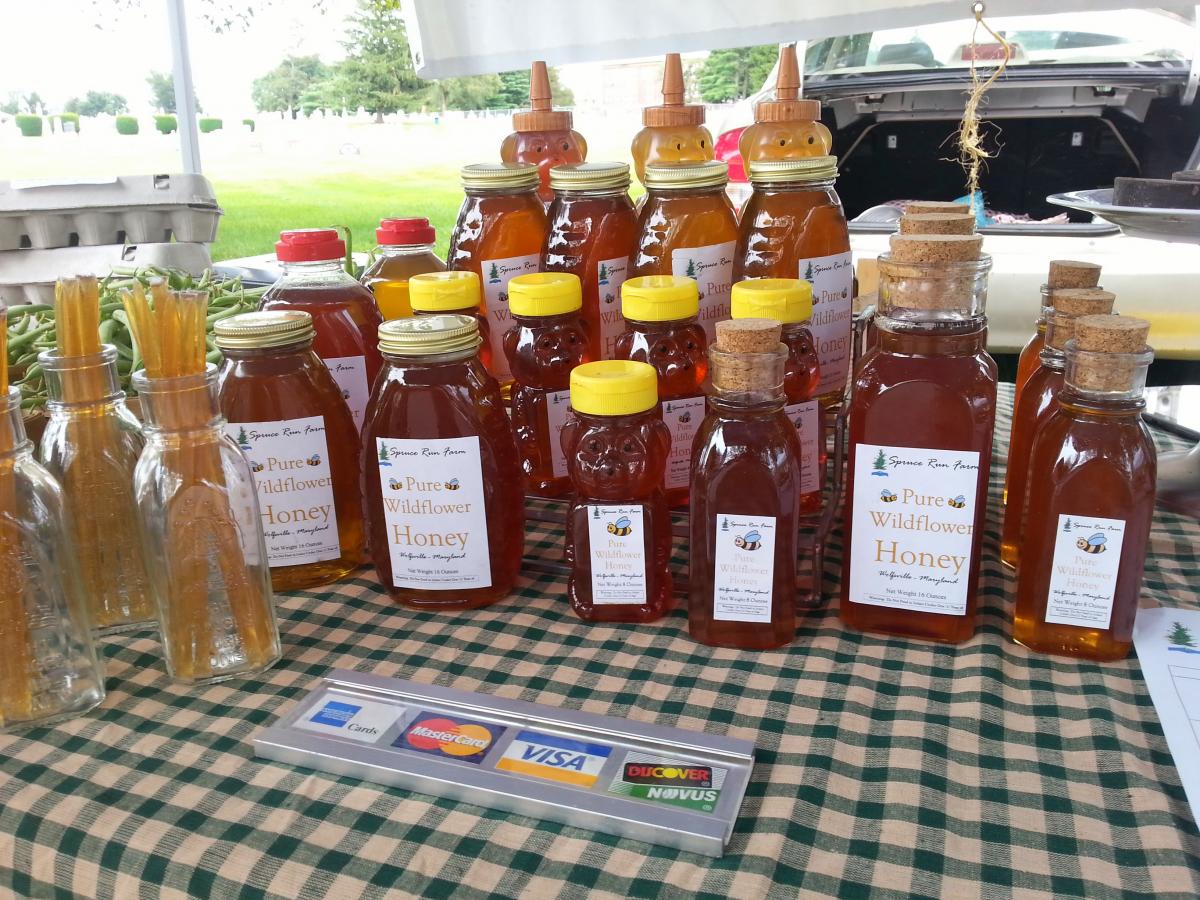Now is the time of year that new beekeepers are taking courses from their local clubs. I remember when I took the course several years ago, there were many people there who had no experience keeping bees. I was lucky, I had already worked with bees and my experience with my great uncle's apiary in Carroll County is what made me want to have my own hives.
I took a few minutes to think about what were some of the important things people told me when I was just getting started, or that I've learned over the years, that I think it would be good for all new beekeepers to hear. They might not be the most important, but definitely good to know.

Yes, stings happen.
It’s important to remember that you are basically a home intruder, robbing the bees of their valuables (Honey, Pollen, Propolis). This makes them unhappy, just as you would be happy if someone broken into your home and stole cash, electronics, or jewels. Your goal is to get in and out undetected, but sometimes they catch you, and when they do, it hurts! However, the pain is short lived, so long as you’re prepared for it. Many beekeepers, including me, are actually allergic and carry Epi-pens.

"Bee" Prepared
Beekeeping isn’t a difficult hobby, but it is one that sometimes requires careful thought, and thorough planning. You have to do your best to stay at least a half a step ahead of them. Always be prepared to add more boxes of frames and foundation to their hive to keep them from swarming. Be prepared to feed them during the weeks when there is not a food source readily available in nature. It’s a great idea to get acquainted with someone who is already keeping bees. A mentor can help keep you from making novice mistakes. It also helps to read books on beekeeping and join some related groups on social media too.

Location, Location, Location
You certainly heard this adage many times before, but you really have to take into consideration the location of your bees. They travel about 3 miles from their hive each day. What will they find in their surroundings? To that extent, bees are still a wild animal. They go where they want to go, and they do what pleases them, and that’s not always what you want them to do. Is there a neighboring farm that sprays crops with pesticides? (Speaking of which, if you’ve ever used a weed killer or pesticide where you plan to keep your bees, understand you must give that up before getting bees.)

It’s Expensive
The investment in keeping bees your first year usually averages $600.00. You must buy protective wear for yourself, hive components, tools for working in the hives, and packages/nucs to start your bee colony(ies). Most people also choose to take an introductory course from their local beekeeping association, which has a fee, and if you don’t own your own honey extractor to harvest the honey, there’s usually a fee to rent one from your local association as well. However, once established, beekeepers recoup the expense by selling honey and other related products.

It’s Rewarding
There is nothing more delicious than the golden honey produced by your very own bees. It’s also very nutritious; full of vitamins and minerals. It may provide relief from seasonal allergies too! Honey, often added to soaps and cleansers, is also a natural antimicrobial. It can also aid in healing wounds and infections, which makes it good for your physical health. Likewise, the act of beekeeping is good for your mental health. Your activities in the bee yard have to be calm, and require your concentration. You must leave all stress and frustration at the door. The sound of the bees buzzing happily in their hive is a soothing song of sorts. I could go on about all the personal benefits of beekeeping, but it’s also rewarding for your community and the world. Bees are an important pollinator, and your neighbors will notice more vibrant blooms on their flowers, and greater yields from their gardens.





